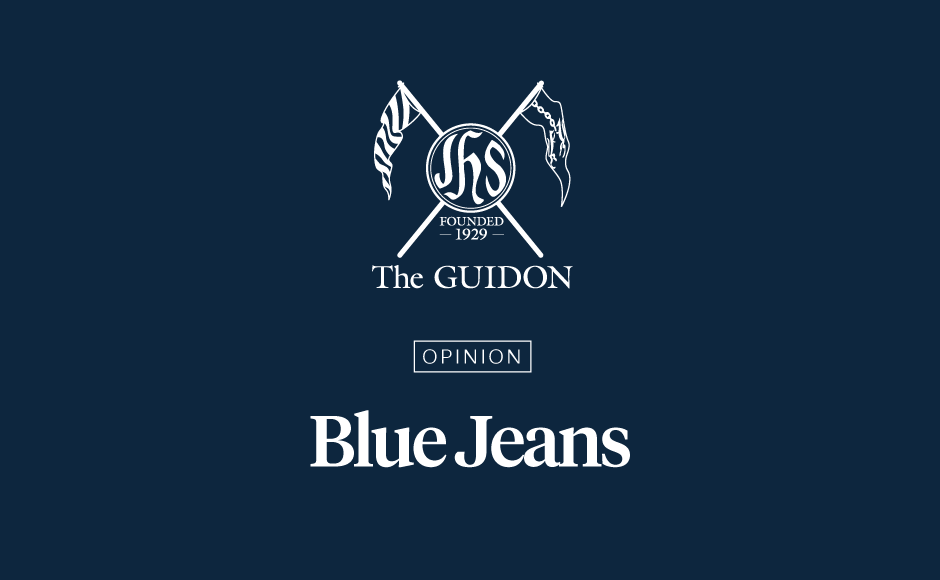The strawman is “neoliberalism.”
An opinion piece in The GUIDON’s September 2017 issue entitled “Who’s afraid of the big bad neoliberal?” is many things at once: an ode to “neoliberalism,” a celebration of the success of neoliberal policies, a rebuke of the “scapegoating” rhetoric against neoliberalism (particularly from the Left), and an imploration for critical judgment that many seem to lack (again particularly from the Left). In sum, author Liam Lu tries to straighten the record against the “boogeyman” that neoliberalism has become in the political discourse.
If one does take a critical look at the piece, as the column suggests, one finds that beneath the platitudes, Lu’s essay is little more than a love letter to centrist ascendancy under the guise of “nuance.”
Indeed, even as Lu decries the lack of nuance in the discourses on neoliberalism, he does nothing to clarify the nuances of such an “embattled term.” A basic and foundational step might have been to clarify what “neoliberalism” means, as ideology, as development model, as economic analysis, as policy agenda, as governmentality, not to mention the contestations among conceptualizations of the term, as well as the varying worldviews, biases, programs, and consequences associated with each. Instead, the piece is content to adapt a framework for this “embattled term” from an (unscientific and relatively uninfluential) opinion column.
Aside from being analytically amiss, the working assumptions of the opinion piece are factually unsound as well. Contrary to Lu’s cited starting point of 1982 with Charles Peters, the term “neoliberal” has been in circulation long before, and has been used by Chicago School economists as early as the 1950s. Meanwhile, neoliberalism became vogue in the 70s and 80s with the rise of Allende, Reagan, and Thatcher.
Finally, Lu’s interpretation of neoliberalism, “to think practically and pragmatically, discarding ideological affinity,” is wholly problematic. This interpretation is also taken from Peters. It proves hollow if one looks at Peters’s manifesto and sees that its policies and prescriptions are really only rehashes of anti-union, pro-big business, hawkish American conservatism purporting to be the product of critical doubt and reflection.
Indeed this perfumed and pretentious representation of neoliberalism is totally different from how everyone else, from its critics (such as the Left Lu so loathes) to its proponents (such as the IMF). In other words, Lu and those he chastises are not just not on the same page, but on completely different chapters altogether.
Given all these, it is plain to conclude that Lu’s “neoliberalism” is not neoliberalism, but a straw man. He defends not neoliberalism but something else, something superficially similar but hollow and discursively meaningless. Instead of a well-informed critique of complex and complicated ideas and discourses, the column reads like a hasty attempt at vilifying without understanding.
The author seems to acknowledge this somewhat, distancing from “bombastic free market fundamentalists” and “gung-ho” technocrats. However, this is immediately invalidated by a fervent defense of Ramos-era neoliberal policies. These policies of deregulation and privatization, which in their own right were quite bombastic and gung-ho, were claimed to have brought about growth and revived telecomm, airlines, and even water.
Never mind the obvious folly of attributing to neoliberal policies the after-effects of simply being rid of Marcosian cronyism. The touted economic growth was, in the twenty-year period after Ramos, one of the lowest yearly average growth rates in Southeast Asia. These policies also failed to insulate the economy, especially the poor, from the effects of the Asian Financial Crisis. These policies also led to deindustrialization and to the destabilization of the country’s agriculture industry, which then caused many of the challenges we face today (food insecurity, unemployment, rapid urbanization etc.). It is clear that these arguments hold less water than the “mismanaged” pre-privatized Manila cited in the piece.
All this is an example at work of the fatal flaw of centrist thinking. It puts so much premium on “balance” and hearing out “both sides” that it ends up saying nothing substantial at all. Too much is spent on two-sidedness, on dispelling boogeymen, that real oppression, and real acts of struggle against such, are ignored.
Karl Marx said it better, that mere interpretation of the world is not enough; “the point, however, is to change it.” To quote another wise Marx, the great comedian Groucho: “boogie boogie boogie!”




